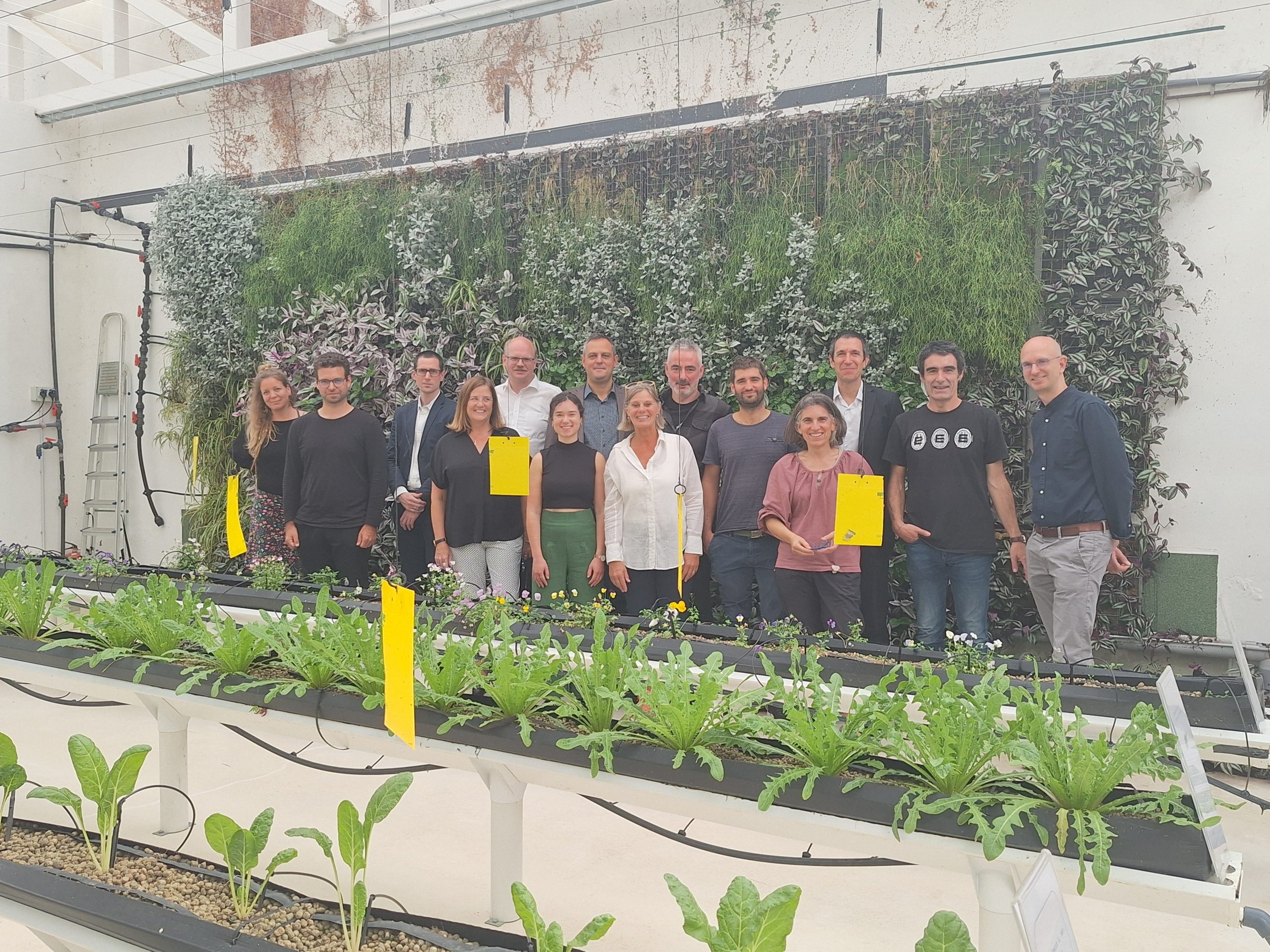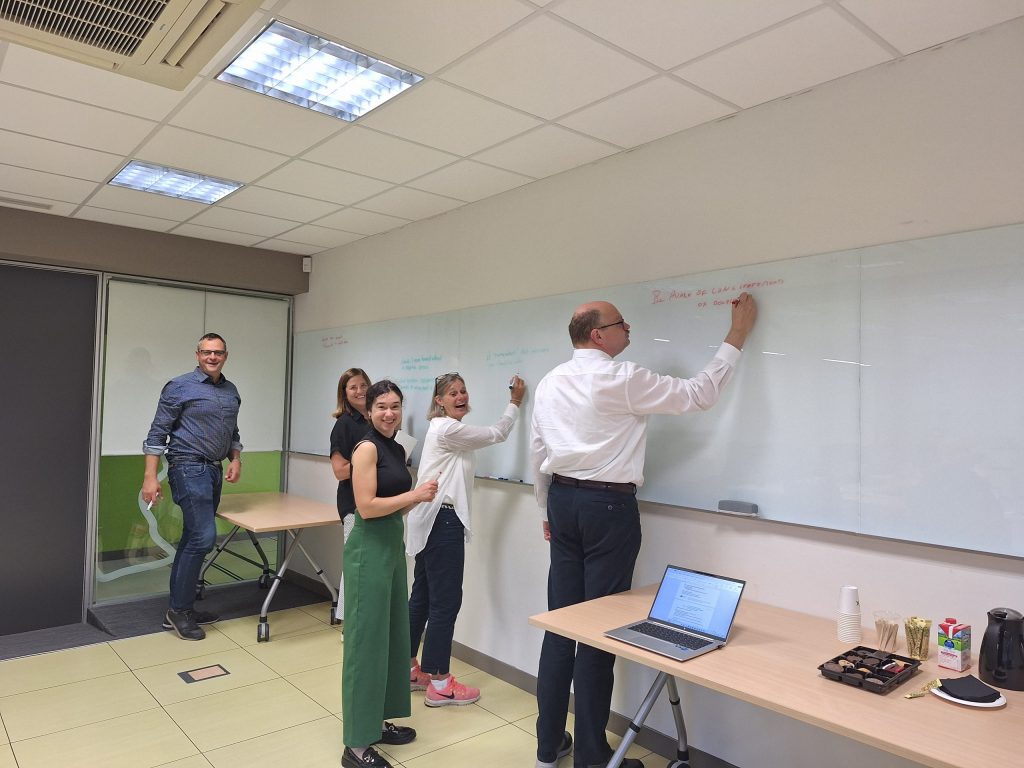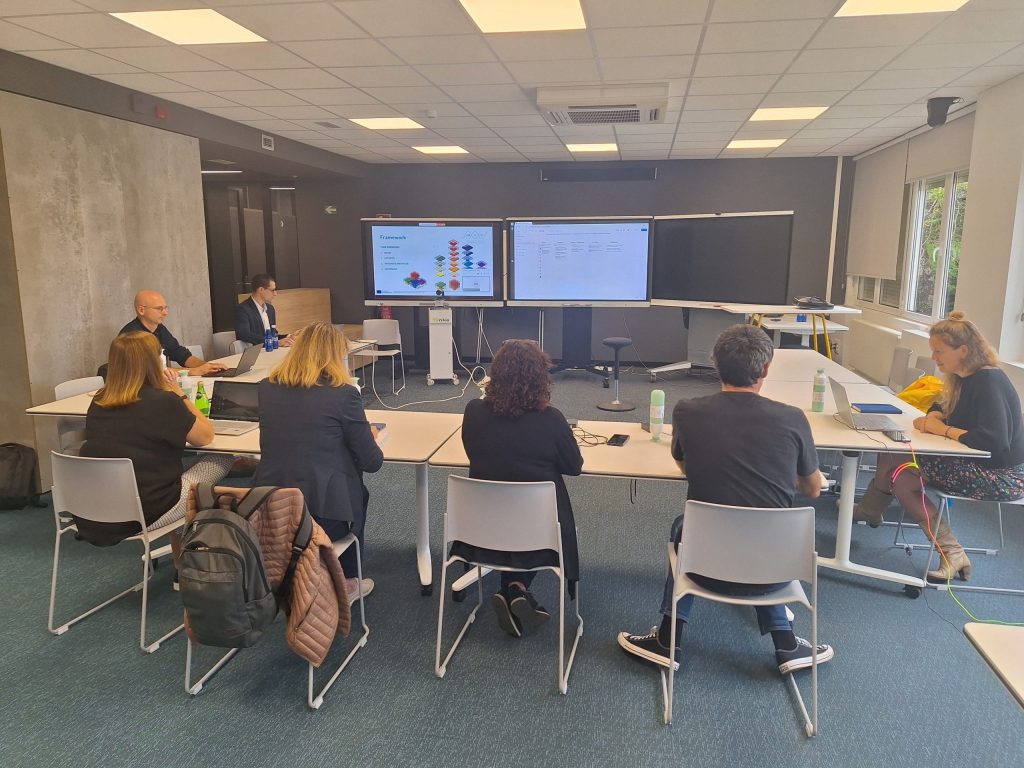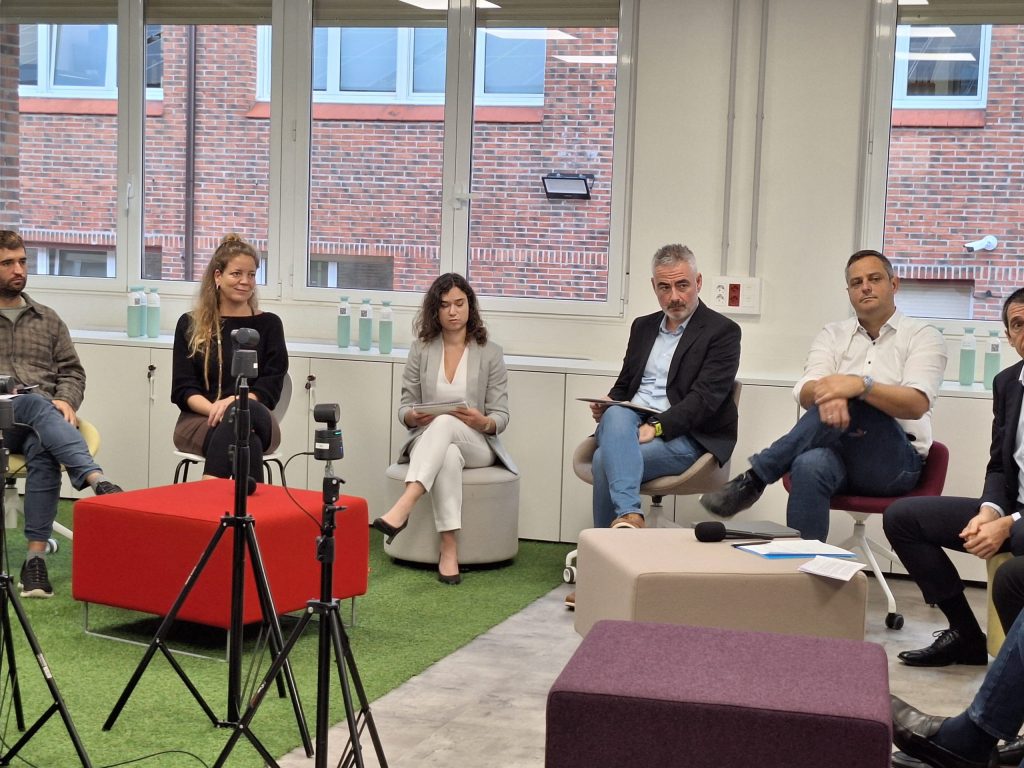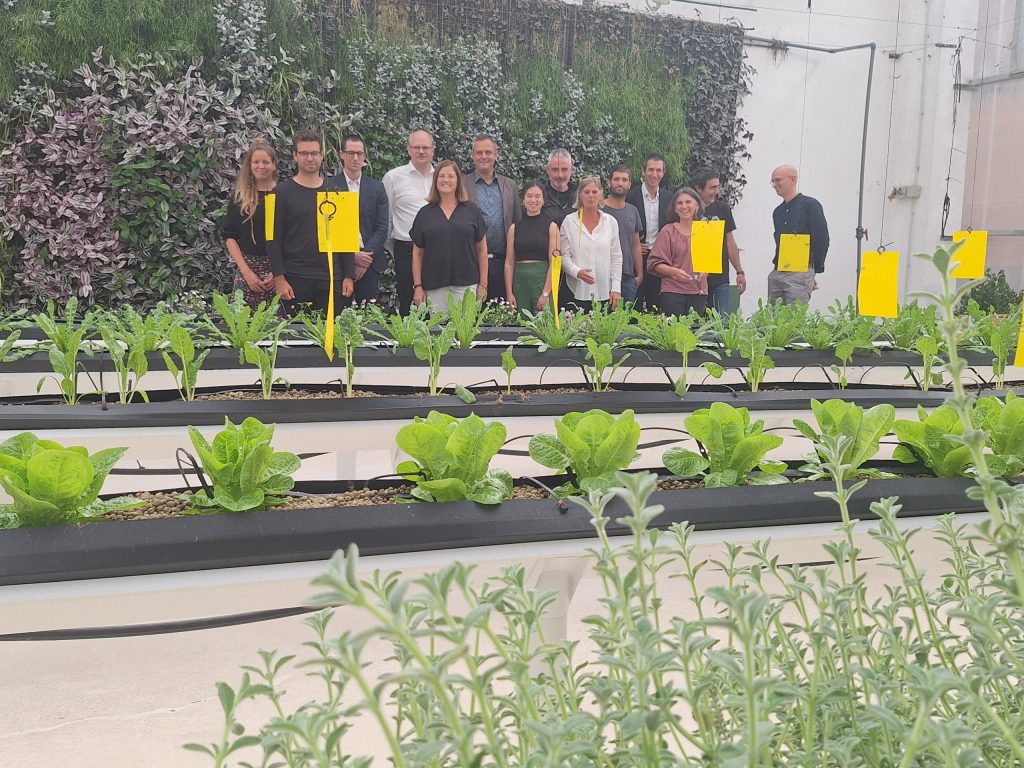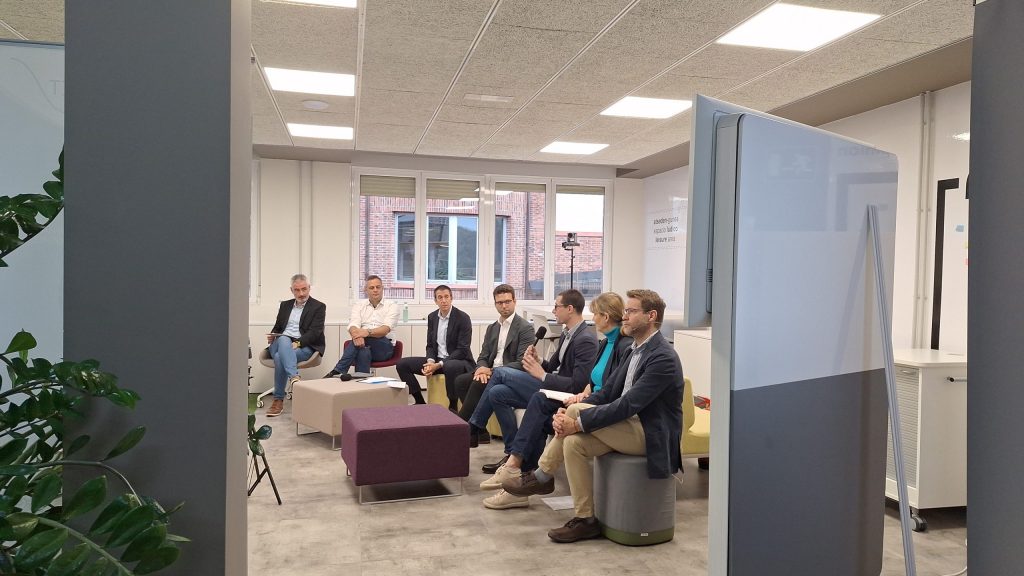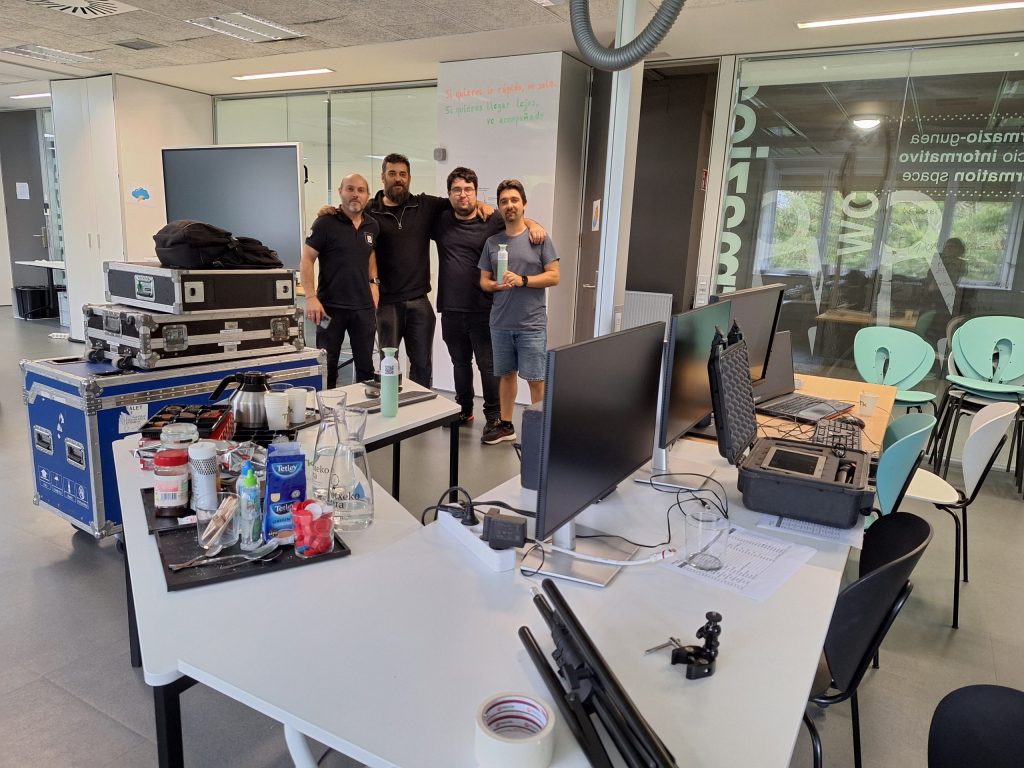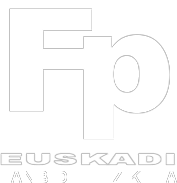Reflecting on the Final AIRinVET Consortium Meeting at TKNIKA
This post is also available in the following languages: Euskara, Español
This week, we gathered at TKNIKA for our final meeting as the AIRinVET consortium. This event marked a significant milestone in our journey, as we focused on discussing the roadmap, the self-assessment tool, and our recommendations for the vocational education and training (VET) system in Europe and beyond. These insights are aimed at policymakers at both the national and EU levels, striving to enhance the quality and impact of VET globally.
On the first day, we carried out a group review activity, where we tested the tools we developed with experts from other institutions familiar with vocational education and research. We were pleased to welcome participants from CIFP Don Bosco LHII, NBCC, the Challenger project (Šolski center Kranj), the Barcove project (Projar Group), and, online, the Nearvet project (Dimitra Education). Their feedback was crucial in refining our tools for future use.
On the second day, we organised a live-streamed event on YouTube. The session included several segments. It began with a presentation by EACEA, followed by a discussion on the current state of innovation and research, including barriers and incentives for development. The session continued with presentations from the AIRinVET, BARCOVE, and CHALLENGER projects, all working at the European level, and concluded with a roundtable discussion involving project partners and invited experts. This discussion explored the future of innovation and research in vocational training, featuring representatives from companies, vocational training centres, universities of applied sciences, and consultancies. These diverse participants, all key players in the innovation ecosystem, offered varied perspectives. The symposium will soon be available on our website and YouTube channel, ensuring it is accessible to a wider audience.
In the afternoon, we held a session on forward-looking recommendations, focusing on strategic perspectives and future directions for vocational education and innovation. This discussion aimed to outline clear steps and strategies for the evolution of the VET sector.
This two-day event at TKNIKA was an engaging and insightful experience, bringing together key players in vocational education to collaborate and drive innovation forward. We want to specially thank you to all project partners and associates as well as to the project officer from EACEA, Nataša Kristan from the Challenger project, Juan Manuel Mondèjar from the BARCOVE project, Miren Canellada from CIFP Don Bosco LHII, and Vaso Anastasopoulos from NEARVET project whose presence and contributions enriched our discussions.
In the coming days, we will publish reports on the roadmap, policy recommendations, and the self-assessment tool on our website, ensuring these valuable resources are accessible to all stakeholders committed to advancing VET education.


